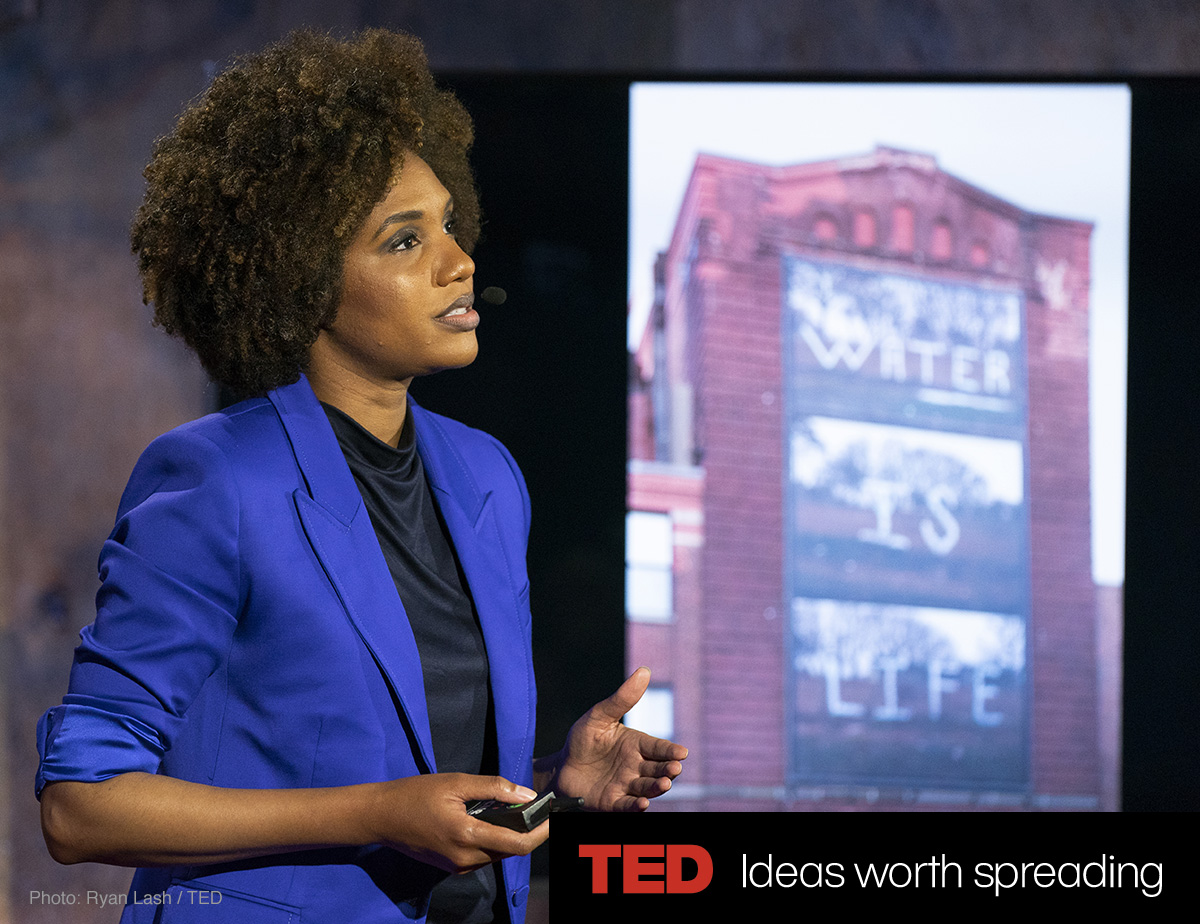LaToya Ruby Frazier, American Witness
The New York Times Style Magazine
by Zoë Lescaze
A marriage of art and activism, the artist’s searing photographs reveal the human toll of economic injustice.

When General Motors announced plans to slash its domestic work force in 2018, company stock soared 5 percent. LaToya Ruby Frazier, a Chicago-based artist whose photographs and videos champion unsung members of the working class, was furious. She decided to embark upon a new series devoted to the autoworkers who were contending with the possible loss of their plant in Lordstown, Ohio; they would be the subject of an upcoming exhibition and a published photo essay. But before any of that could happen, the workers had to agree to let her into their lives. Frazier traveled to their union hall and sat in the foyer as the members filed in for a big meeting that would begin with a vote on her. She was both astonished by their diversity — they were young and old, Black and white, male and female — and aware that she wasn’t necessarily welcome. “As a Black woman, I know what it feels like when someone’s eyes rest on me in a hostile way,” she said. “And I think they have a right to do that. … You’re being told awful news that is going to destroy your livelihood, your income, your family, your community. These people were not in a good mood when I got there.” The doors closed and Frazier waited, heart pounding, while Local 1112 of the United Auto Workers union decided whether to grant her unprecedented access.
The vote was a unanimous yes. The doors opened and Frazier strode inside with four cameras slung across her chest and shoulders. She immediately dropped to the floor and began crawling around the perimeter of the hall, capturing the expressions of anguish, confusion and disbelief written on the faces of people whose lives were falling apart.
“I am showing these dark things about America because I love my country and countrymen,” she said. “When you love somebody, you tell them the truth. Even if it hurts.”
Frazier’s radical empathy has brought her to places whose occupants have every reason to distrust outsiders. She photographs communities gutted by unemployment, poverty, racism and environmental degradation, seeking out subjects dehumanized or ignored by the mainstream media. At 39, she sees her life’s work as an archive of humanity, one that particularly documents the courage and diversity of blue-collar workers and the consequences of the policies that condemn them to struggle. For her, this is what it means to be a patriot. “I am showing these dark things about America because I love my country and countrymen,” she said. “When you love somebody, you tell them the truth. Even if it hurts.”
Socially conscious artistic practices may be in vogue these days, but Frazier goes beyond hollow claims of “raising awareness” with an essay in a magazine or a show at an art museum. She is the rare photographer who approaches relationships with her subjects as lifelong commitments, and who tries to make substantial, material differences in their lives. Frazier’s conviction in art that involves — and transforms — entire communities aligns her with Rick Lowe, an artist who, with his collaborators, famously converted an underserved swath of Houston into a nexus for housing, art programming and neighborhood development activities. She also carries on the legacy of the German artist Joseph Beuys, who believed that participatory art could heal society. Frazier, though, pursues these conceptual ideals while still producing formally elegant images using traditional techniques. Working mainly with a medium-format camera and black-and-white film, her intimate domestic portraits and expressive landscapes are classically beautiful, even when they depict harrowing realities. Making photographs as poetic as they are political is, for Frazier, a way of honoring her subjects. “She doesn’t pop in and pop out,” said the artist Carrie Mae Weems, Frazier’s friend and early mentor. “These are long-term projects that deeply matter, not only to her but to the community and, ultimately, I think, to the nation.”

This fall, Frazier will publish “Flint Is Family in Three Acts,” a record of her five-year collaboration with people affected by the ongoing contaminated-water crisis in Flint, Mich. “The Last Cruze,” a formidable and moving volume of portraits and interviews with the autoworkers, was released in December. “If you take the work seriously, it changes how you see people,” said the artist Doug DuBois, another friend and mentor, who taught Frazier at Syracuse University. Her work has the power to propel viewers “from empathy to activism,” he said. “If you get it, you’re going to get angry.”
Frazier herself is fierce, prone to eloquent, impromptu diatribes on oppression in its many forms, from Reaganomics to redlining. She wears gold-rimmed glasses and her hair in an Afro, a look she describes as “militant nerd.” And she’s funny — quick to find the dark humor in bleak situations. A few years ago, when a doctor told her that lupus, an incurable autoimmune disease, had rendered her skin photosensitive to the point where she can’t safely go outside on sunny days or even sit under fluorescent lights, she couldn’t help but laugh. “So I’ve become one with my medium?” she asked, her raspy voice incredulous. “I’m cracking up. He doesn’t think it’s funny, but it’s like, how ironic.”
[…]
Courtesy of: The New York Times Style Magazine

